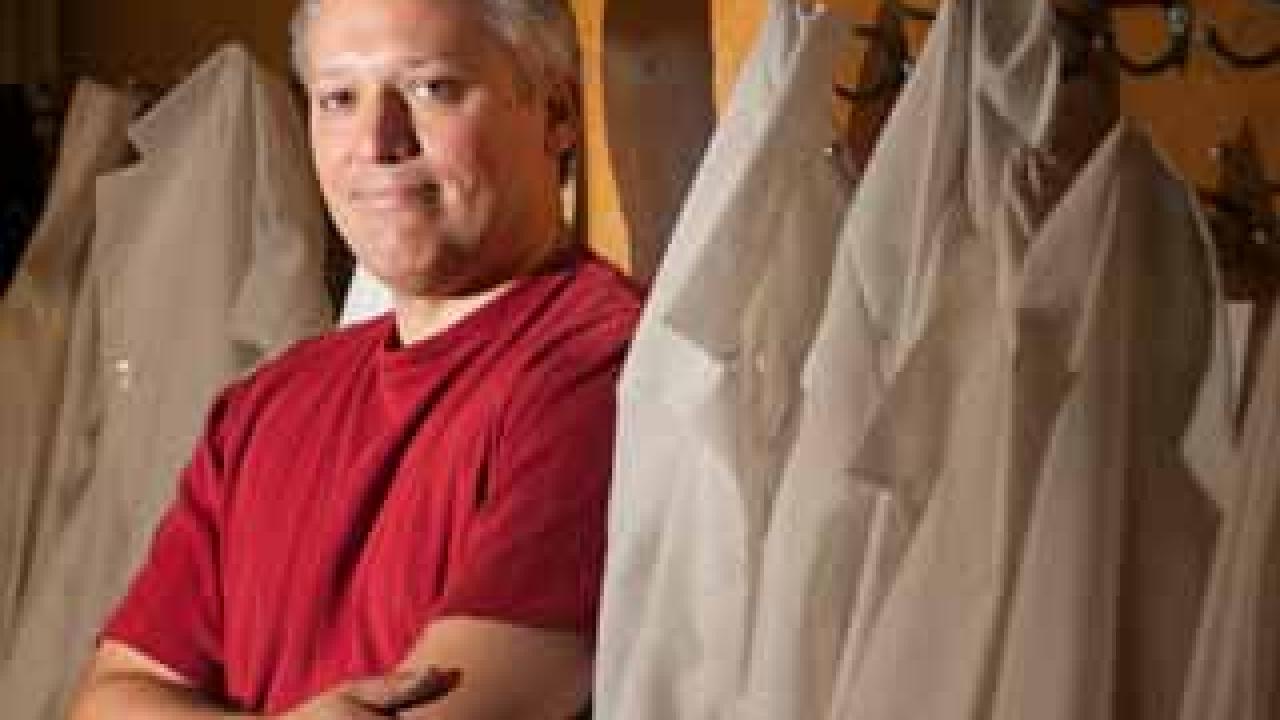The hefty college textbook, weighty in both pounds and dollars, has long been a staple of student life. But UC Davis chemistry professor Delmar Larsen is on a mission to replace textbooks with an online, open e-textbook network. Larsen's "ChemWiki," launched in 2008 on a shoestring budget, now nets over 2 million visitors a month, making it the most visited domain among the university's websites.
"We're addressing a need out there for vetted information," Larsen said.
ChemWiki recently received its first major funding — a grant of $250,000 from the National Science Foundation to a consortium including UC Davis, Sonoma State University, Diablo Valley College, Contra Costa Community College, Hope College (Michigan) and the University of Minnesota, Morris. The money will support further expansion of the wiki network and the first side-by-side comparison of the ChemWiki versus a standard textbook in classroom teaching.
In spring quarter 2014, half of a UC Davis general chemistry class, about 200 students, will use the standard textbook as their principal reference: The rest, hearing the same lectures from the same professors and studying the same material, will use the ChemWiki. The results will be evaluated by researchers from the Center for Education and Evaluation Services at the UC Davis School of Education.
A single general chemistry textbook for undergraduates can cost hundreds of dollars, with new (and more expensive) editions appearing regularly, Larsen said. Yet the material in such textbooks is well established, in some cases for decades, if not centuries.
"The content hasn't changed, so how do we justify these costs?" he said.
ChemWiki began with entries written by students. Then Larsen realized that much of the material he needed already resides online, scattered across the Internet, in course notes, on professors' websites, and other locations.
"All the content we need for the first two years of undergraduate chemistry already exists online — so we went out and asked for it," Larsen said. When authors responded positively, Larsen and his student wiki-editors worked to adapt the material into the wiki format.
Anyone can contribute to ChemWiki: "Just email me," Larsen says.
Larsen now offers extra credit to students who submit entries, occasionally holding pizza parties to bring in volunteers to write or review pages. He assigns a rating system to new articles based on the author's expertise and experience, with articles moving up as they are edited and vetted. The ChemWiki team is setting up a formal system of volunteer curators responsible for maintaining pages and expanding the wiki.
So far, students are using ChemWiki as a reference and a supplement to, rather than a replacement for, their traditional textbooks, Larsen believes.
ChemWiki is planning a partnership with UC Irvine's OpenChem project, a collection of free, open-access video lectures in undergraduate and graduate level chemistry.
Larsen and collaborators are also developing wikis for other fields, including math, physics, statistics and geology. He envisions an interconnected "STEMWiki hyperlibrary" across science, technology and engineering that meets the needs of both faculty and students.
"Let's say I want to teach enzymology. I might start in biology in the BioWiki, but then I need kinetics from general chemistry in the ChemWiki, and for that I also need calculus from the MathWiki — so I can link from one to the other as a centralized resource," Larsen said.
He has a vision of students reared on video games progressing through a chemistry course by completing tasks, gathering points and "leveling up," just as they would in a video game. It's a style of learning that might suit some students, Larsen said.
Ultimately, Larsen hopes to transform the textbook industry. "It's a labor of love," he said.
Media Resources
Andy Fell, Research news (emphasis: biological and physical sciences, and engineering), 530-752-4533, ahfell@ucdavis.edu
Delmar Larsen, UC Davis Department of Chemistry, 530-754-9075, dlarsen@ucdavis.edu
